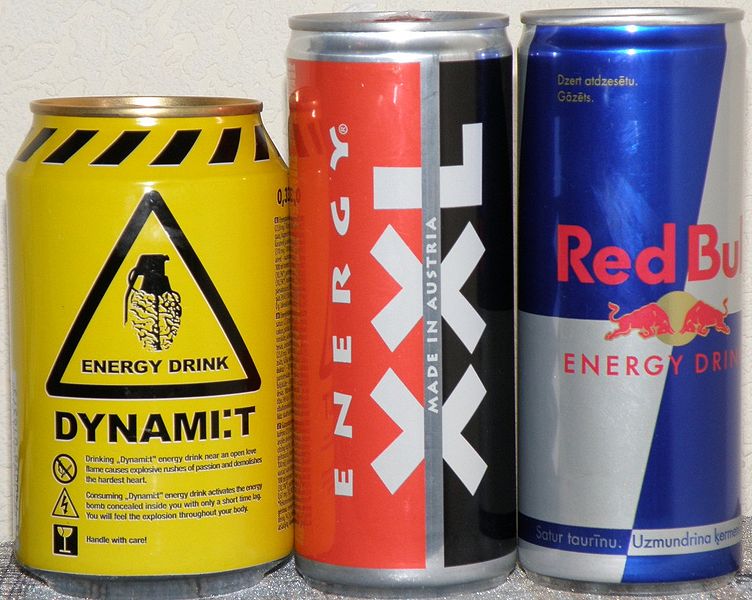What's Your Motivation?
 Tuesday, June 8, 2010 at 05:01PM
Tuesday, June 8, 2010 at 05:01PM One of the hardest parts of becoming physically active is finding the motivation to get started and keeping that motivation long enough to see results. Because exercise is sometimes a real pain, we have a natural human tendency to avoid it – a kind of primal survival instinct that tells us to stop doing that which causes discomfort.
Our motivation has to be stronger than that instinct.
Motivation to do anything is an individual trait. What worked for me won’t necessarily work for everyone. The burden of motivation, then, falls to each of us individually.
Now, I’m an expert on me. I know what pushes my buttons and makes me tick. Thus, I know what motivates me and what doesn’t. The same is true in your case. The really difficult part is being honest enough with yourself to determine what it’s going to take to get the fitness ball rolling and keeping it going.
It’s funny sometimes how people can be brutally honest with other people but will lie to themselves. I used to tell myself all the time that I was in great shape, even when I carried an extra 25 pounds of flab on my gut. Contrary to the humorous t-shirt slogan, being “round” does not equate to being in “shape”. I was lying to myself to my own detriment.
Since I can’t specifically tell you what your motivation is (or should) be, I can tell you what mine was and is. When I first got started on this journey, my motivation was to impress my wife. Shallow, but true. In truth – a truth I wasn’t telling myself at the time – I knew my marriage was desperately in trouble, and a lot of the problem surrounded my physical condition. Not that Alice was so shallow that my appearance caused her not to love me – far from it – just that I was so unhappy and emotionally void that just being around me was unbearable for her.
Imagine what it would be like to be in a relationship with a guy that spent all of his time holed up in his bedroom watching TV and surfing the internet. I had separated myself from my children and voluntarily checked out of life. This wasn’t the grand adventure she had envisioned for herself when we got married, so she was justifiably disappointed and ready to escape.
I knew all of this, but what I wanted to believe was that everything – including my health and marriage – was just fine. When the lie I had told myself was exposed, I found the real source of my motivation – to fix the damage I had created in my marriage by improving not only my body but also my mind.
First motivation: impress my wife. New motivation: keep my wife and marriage through focused self-improvement on both a physical and emotional level.
I’ve come a long way in my self-improvement goals. I’m not done – I don’t think one is ever “done” with improving the self – but I’m content with my growth. Having repaired a lot of the damage my complacency did to my marriage, I needed a new motivation.
That’s where Wo40.com came in. My fitness and marital successes have compelled me to share my journey with others in the hopes that I can make a difference in the lives of my readers. So, basically, YOU are my motivation now. What can I do to make your life more meaningful, abundant, rich, and prosperous? Those are my driving questions and the very reason I spend time writing articles like this one.
My journey started with a realization of truth – that I wasn’t happy with who I was. Birthdays have a strange ability to make us introspective as we realize that we are growing older. On the eve of my 40’s, the truth of my condition somehow became apparent; I realized that I needed to change.
You must be honest with yourself first. Sometimes it’s hard to face the truth about ourselves, but the longer we avoid who we really are the longer we will stay where we are. Are you happy? Truly happy? True happiness comes from achieving things and making a difference. It comes from being actively involved in something that is larger than we ourselves are.
Look in the mirror. Strip down to your jockeys and take a look at yourself. The Bible says that we are “fearfully and wonderfully made.” Does your body belie that sentiment? Look into your own eyes. They are the windows to the soul, after all. What are they telling you? Are they begging you to help a fading soul, or do they sparkle with the light of life?
Truth. It will set you free.
There’s no better way to show love for yourself than to take care of your body. Every time we light a cigarette, down a case of beer, or eat food that we know is nutritionally void, we demonstrate a deeper belief that we aren’t worth it, that we don’t deserve better. How you treat your body speaks volumes about deeply held self-image beliefs. Learn to love yourself, and demonstrate that love through action.
Reading this, it might seem a rather simplistic that I would believe that exercise and nutrition could have that big an effect on your overall life. 2 years ago I would have said the same thing. My only advice is this: try it for yourself. Tell yourself every day that you’re worthy of being loved and demonstrate that love for yourself through a regimen of exercise and proper nutrition.
What’s your motivation? You are. The people you love are. If that’s not good enough for you, then you’re already dead and your body is just slow in figuring it out.
This article didn’t turn out as expected, but sometimes it’s a good thing to just let go of the outline and speak from the heart.
Be well.
 Keith |
Keith |  2 Comments |
2 Comments |  Life,
Life,  Lifestyle,
Lifestyle,  Motivation
Motivation 



